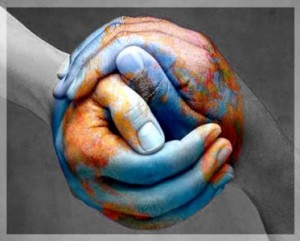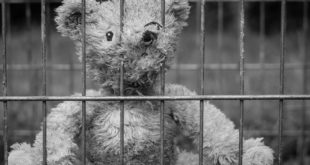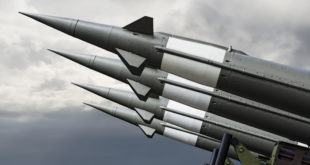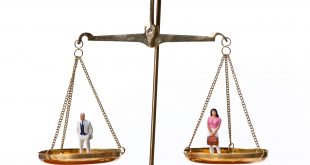Today, as a human rights discourse evolves, addressing the situation of the human rights defenders has become inevitable. Their role in the promotion and protection of the human rights worldwide has become more and more fundamental. However, the legitimate work of many human rights defenders has been the subject of stigmatization and denigration and, further, their own human rights have been violated.
“Human rights defenders” is a term used to define people who, either individually, or as a group, act to promote or protect human rights, such as female genital mutilation, discrimination, torture among others. They investigate, collect information, compile reports on violations and assist victims in their pursuit of justice at national, regional or international level. In 1998, the General Assembly of the United Nations recognized the importance of the work of the human rights defenders adopting the Declaration on the right and responsibility of individuals, groups and organs of society to promote and protect universally recognized human rights and fundamental freedoms [1] which aims to give legitimacy to the work of human rights defenders. Moreover, in 2000, the Commission on Human Rights created the position of the Special Rapporteur on the situation of the human rights defenders to reinforce the implementation of the Declaration.
These “new actors” in the international scenario are very important for many reasons. For instance, to expose human rights violations, to campaign for redress for victims, thus having a fondamental role beside to the non-governmental organization in the promotion and the protection of human rights.
However, considering the human rights protection, the defenders take action on their own. And, in spite of this international support for the human rights defenders and their work, many defenders have been subjected to human rights violations. Executions, torture, arbitrary arrest, harassment, false accusations and unfair trial are only a few examples of the abuses committed against human rights defenders. For instance, the human rights defenders in Colombia in the region of Madgalena Medio, who have lately been victims of bullying and agressions[2].
In addition, some human rights defenders are often placed in situations at greater risk because of the nature of the rights that they are defending, for instance, women human rights defenders who worked in the area of domestic violence. These defenders encounter pressure from victims’ family members or indeed their own family members as well as threats from the perpetrators. This situation worsens in societies where there is a patriarchal structure, constraints of culture and traditions which enclose women in a limited and stigmatized role. All these concerns require a special attention.
In this context, it is important to note that the situation of the women defenders appears to be more vulnerable in some areas, like in Asia or Africa, where the scenario is aggravated by instable political regimes, armed conflicts and social fundamentalism. Therefore, the regional human rights mechanisms should be reinforced. The more localized the mechanisms of protection are, the more effective they are expected to be, since the monitoring and the investigation are more accurate.
In this connection, a good example of a regional mechanism is the Special Rapporteur on the Human Rights Defenders in Africa created in 2004. It aims to ensure the monitoring of the human rights defenders’ situation in the African region. Furthermore, there are regional and national programs promoted by non-governmental organizations which develop preventive initiatives and effective implementation of the protection mechanisms supporting the activities of the human rights defenders and their organizations.
In this way, those regional mechanisms and the regional work of NGOs, in addition to UN mechanisms, like the 1998 Declaration and the Special Rapporteur on Human Rights Defenders, could foster effective strategies to improve the situation of the human rights defenders and achieve the protection of the defenders’ human rights. Cooperation between universal and regional mechanisms and NGOs could better assist and encourage regional and national programs with a view to obtaining effective results in support of the human rights defenders.
In conclusion, in order to promote better conditions for human rights defenders and to support this new way of ensuring the promotion and protection of human rights, counting only on the universal mechanisms is not sufficient. Especially concerning gender issues in more vulnerable regions. Then, it is time to the international community be more conscious about the need of cooperation between universal and regional mechanisms and NGOs in order to guarantee the protection of the defenders of human rights. Aiming at last for the promotion and the protection of the human rights worldwide.
Leticia Sakai
Ph.D. Candidate in International Law in the University Paris 1 Panthéon-Sorbonne in a double certificate system with the University of São Paulo since 2009, Master in International Law and International Organizations in the University Paris 1 Panthéon-Sorbonne in 2009, Bachelor in the Law School of the University of São Paulo in 2006 and lawyer in the São Paulo’s Bar Association since 2007. Already worked to the Permanent Brazilian mission to the United Nations in Geneva, to Human Rights NGOs and to the Office of the United Nations High Commissioner for Human Rights in Geneva. Laureate for the financial supported for PhD Students by the Institute of High Studies of the Minister of National Defense of France since January 2012. Contact : Leticia.Sakai@malix.univ-paris1.fr.
Notes
[1] Adopted by the UN General Assembly by the Resolution no 53/144 in 9 December 1998, UN.Doc. [A/53/144].
[2] See the denunciation published by the International Amnesty, 13 February 2013 (AU 37/13, AMR 23/006/2013 – 13 février 2013).
 Le petit juriste Site de la revue d'actualité juridique
Le petit juriste Site de la revue d'actualité juridique






